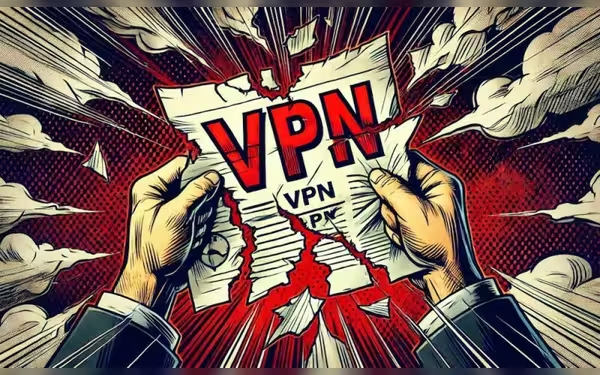Monday, December 23, 2024 03:55 AM
Council of Islamic Ideology's Stance on VPNs in Pakistan
- CII raises concerns over VPN usage in Pakistan.
- Students and freelancers rely on VPNs for access.
- Government actions may stifle freedom of expression.
 Image Credits: dawn.com
Image Credits: dawn.comThe Council of Islamic Ideology's recent stance on VPNs raises concerns about access to information and freedom of expression in Pakistan.
The Council of Islamic Ideology (CII) has recently stirred discussions regarding the use of Virtual Private Networks (VPNs) in Pakistan. VPNs are tools that allow users to create a secure connection to another network over the Internet. They are often used to access restricted websites and maintain privacy online. In a country where internet censorship is prevalent, the role of VPNs has become increasingly significant, especially for students and freelancers who rely on them to access international resources and platforms.
In recent times, the government has taken steps to limit access to certain social media applications, particularly the app known as X. This has raised concerns among various groups, including students and digital freelancers, who depend on these platforms for their education and work. The CII's involvement in this matter has led many to question the rationale behind their stance on VPNs. Are they merely trying to control the flow of information, or is there a deeper ideological concern at play?
Students often use VPNs to bypass restrictions and access educational materials that are otherwise unavailable in Pakistan. This is crucial for their learning and development, especially in a globalized world where information is key. Similarly, freelancers, who contribute significantly to the country's digital economy, utilize VPNs to connect with international clients and platforms. Limiting their access could have dire consequences for the economy and the future of many young professionals.
Critics argue that the government's actions are an attempt to stifle dissent and control the narrative. By restricting access to social media and VPNs, they may be trying to silence voices that oppose their policies. This raises important questions about freedom of expression and the right to access information. In a democratic society, it is essential to strike a balance between security and individual rights.
The relationship between the Council of Islamic Ideology and VPNs is complex and multifaceted. While the government may have its reasons for wanting to regulate internet access, it is vital to consider the implications of such actions on education, economy, and personal freedoms. As Pakistan continues to navigate the digital age, it is crucial for policymakers to prioritize the needs of students and freelancers, ensuring that they have the tools necessary to thrive in an increasingly interconnected world.













